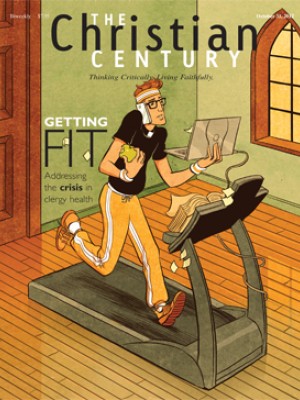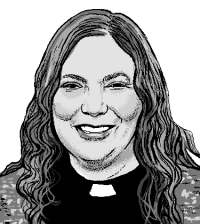Sunday, November 11, 2012: Mark 12:38-44
Some years ago I visited a Roman Catholic parish in one of the poorest areas of Mexico City. Mass was being held outdoors, and I arrived as people were setting up plastic chairs and wooden benches in a circle around the brightly dressed altar. The Virgin of Guadalupe smiled her approval from a mural on the side of the church as a few stray dogs settled down to nap in the warm dust.
The liturgy followed a familiar pattern with songs, readings, a homily and the sharing of the peace. Then it was time for the offering. People got in line, many carrying what appeared to be small, plastic bags filled with a whitish substance. As the guitar band played, each person stepped forward and poured the contents of their bag into coffee cans placed on the altar. It was rice. Each person was pouring a small quantity of raw rice into cans that were soon filled to the brim. We prayed an offertory prayer and continued with the mass.
Read our latest issue or browse back issues.
Afterward the priest explained that every day, every family takes at least one spoonful of rice and puts it aside. This does not add to anyone’s hunger, he noted, but it makes a difference for those who receive one of the cans, usually someone in a home where a person has become ill or died.
The practice of setting aside spoonfuls of rice wove giving into everyone’s daily routine. Your neighbors’ daily bread was part of your own, something you remembered each time you cooked or even picked up a spoon. It made a difference because it was a pattern embraced by the whole community, connecting their communion around the altar to the tables in their neighbors’ homes. It was one of the simplest and most powerful stewardship models I’ve ever witnessed.
On the other hand, the bags of rice did nothing to change the economic issues that continue to produce poverty in that community and many others and to send immigrants across the border in search of something better.
Some of those immigrants find their way to Sunday worship in our Lutheran church in Manhattan where much is different, yet much is the same. We sing many of the same songs, and we eat the same foods at church fiestas. The liturgy is familiar and the Virgin of Guadalupe smiles at us from a banner. Unfortunately, the gross economic inequalities in this city are all too familiar as well.
A couple of mornings a week, immigrant workers meet in the church fellowship hall with a labor organizer to talk about workplace abuses such as salaries at half of the minimum wage with no overtime payments, stolen tips and the sexual harassment of undocumented women. The church hall is a safe space for such conversations. Several evenings a month, others from the church and the wider community meet with the group to strategize on ways to support their efforts and to pressure businesses to agree to fair labor practices. People who eat here at the Lord’s table and can afford to go out for dinner do not want to drop their money into the treasury of a place that is mistreating its workers. This too is a powerful stewardship practice.
As I write, issues of national stewardship are being debated. Will tax cuts for the richest stimulate the economy or further burden the poorest? What about health care for the poor, even for the middle class? What will happen with Medicare and Social Security?
For many of us, the poor widow has long served as a stewardship poster child. We were challenged to imitate her exemplary generosity, not to confront systemic evil by, say, labor organizing. The complicity of organized religion in a system that creates poverty was not part of our time, talent and money ponderings. While many churches have seen the need to move from a fall stewardship emphasis to a year-round vision, our focus usually remains on what goes onto the offering plate and ignores what goes into the United States treasury. Yet Jesus’ words might just as easily refer to the unevenness of taxation and sacrifice in our public life: “This poor widow has put in more than all those who are contributing to the treasury. For all of them have contributed out of their abundance; but she out of her poverty has put in everything she had, all she had to live on.”
Is Jesus lifting her up as a blessed example or denouncing a system of unholy inequality? I don’t think we have to choose. Many of us have been inspired by the outsized generosity of people living in poverty, which in itself becomes a potent refusal to be written off as worthless. Every penny shared, every grain of rice poured into those coffee cans honors God, loves neighbor and resists dehumanization—so does the stewardship of our labors to change a system that begets misery. We might see it as two sides of the same coin.






